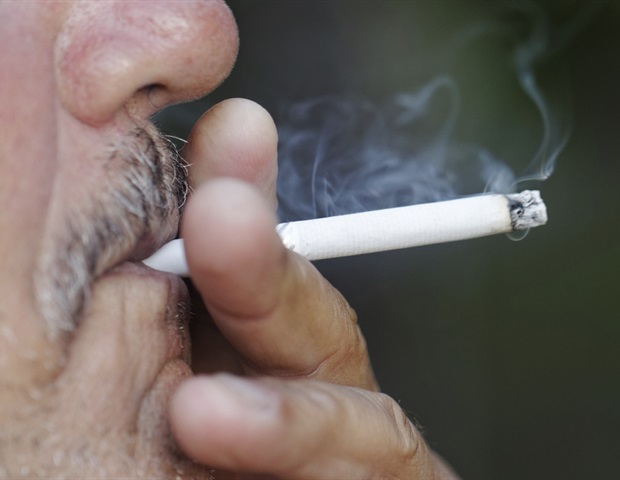
U.S. teenagers and younger adults who vape are more likely to begin smoking cigarettes or to start utilizing hashish or different medicine, a brand new College of Michigan research discovered.
Most vaping research concentrate on adolescents (12-17) in brief time home windows of round two years. Much less is thought about vaping in younger adults (18-25) or the danger for beginning different substance use like cigarettes, marijuana or different medicine. To that finish, researchers examined information from 12-to-25-year-olds over an eight-year interval. They discovered that those that vaped had been extra prone to begin smoking cigarettes, utilizing marijuana or to begin different medicine in the course of the research interval.
We discovered that this danger was persistent over time and was a danger for each adolescents and younger adults. The chance for beginning to use hashish was the identical no matter whether or not somebody was utilizing e-cigarettes or was utilizing different tobacco merchandise.”
Rebecca Evans-Polce, research creator, analysis assistant professor, U-M College of Nursing
Findings for 12-to-17-year-olds over the research interval:
- Those that vaped and used different tobacco had been 54 occasions likelier to begin smoking, eight occasions likelier to begin utilizing marijuana and thrice likelier to begin utilizing different medicine.
- Those that vaped solely had been 22 occasions likelier to begin smoking, seven occasions likelier to begin utilizing marijuana and thrice likelier to begin utilizing different medicine.
For 18-to-25-year-olds over the research interval:
- Those that vaped and used different tobacco had been 22 occasions likelier to begin smoking, 9 occasions likelier to begin utilizing marijuana and thrice likelier to begin utilizing different medicine.
- Those that vaped solely had been 11 occasions likelier to begin smoking, six occasions likelier to begin utilizing marijuana and twice as prone to begin utilizing different medicine.
The excessive danger for each age teams to begin smoking after vaping or utilizing different tobacco merchandise was startling, Evans-Polce stated.
“The actually excessive odds of cigarette initiation no matter what kind of nicotine or tobacco merchandise you’re utilizing is essential,” she stated. “I feel it actually highlights that to the extent which you could stop initiation of vaping and different tobacco merchandise, too, you’ll additionally go actually far in stopping cigarette initiation over the long run.”
Thirty-nine p.c of teenagers report vaping by twelfth grade and 14% of younger adults report vaping previously month, in accordance with the Substance Abuse and Psychological Well being Companies Administration.
Different information point out that individuals are beginning cigarette smoking later in life. Traditionally, folks begin smoking earlier than they hit their 20s. So, discovering that vaping places younger adults at higher danger for cigarette smoking is essential when interested by methods to stop folks from beginning cigarette smoking, Evans-Polce stated.
The findings additionally confirmed the hyperlink between nicotine or tobacco use and beginning marijuana use elevated over time. Whereas marijuana use turned extra frequent amongst adolescents and younger adults over the eight years of the research, the danger appeared to extend most dramatically for many who had been vaping and utilizing different tobacco merchandise.
Total, the findings level to a must develop methods that stop younger adults from beginning to vape, and never focus solely on adolescents, Evans-Polce stated. Prevention of vaping can also result in fewer adolescents and younger adults beginning cigarettes, marijuana and different medicine.
The research seems within the journal Drug and Alcohol Dependence.
Supply:
Journal reference:
Evans-Polce, R. J., et al. (2024). Longitudinal associations of e-cigarette use with cigarette, marijuana, and different drug use initiation amongst US adolescents and younger adults: Findings from the Inhabitants Evaluation of Tobacco and Well being research (Waves 1-6). Drug and Alcohol Dependence. doi.org/10.1016/j.drugalcdep.2024.111402.